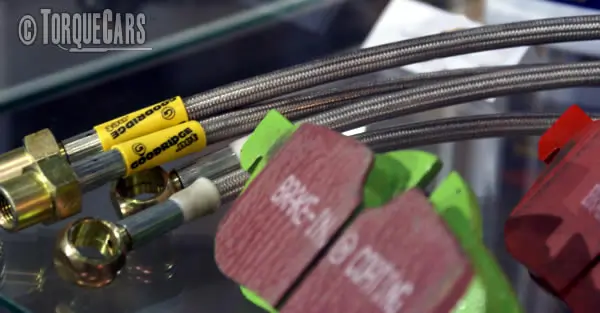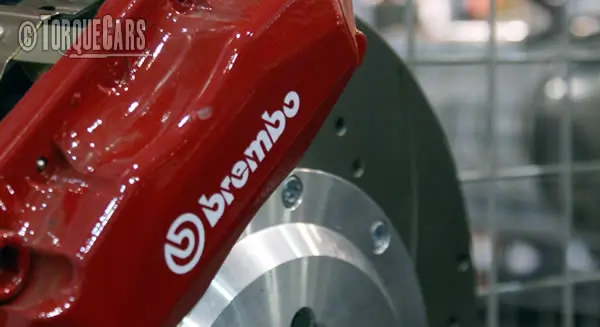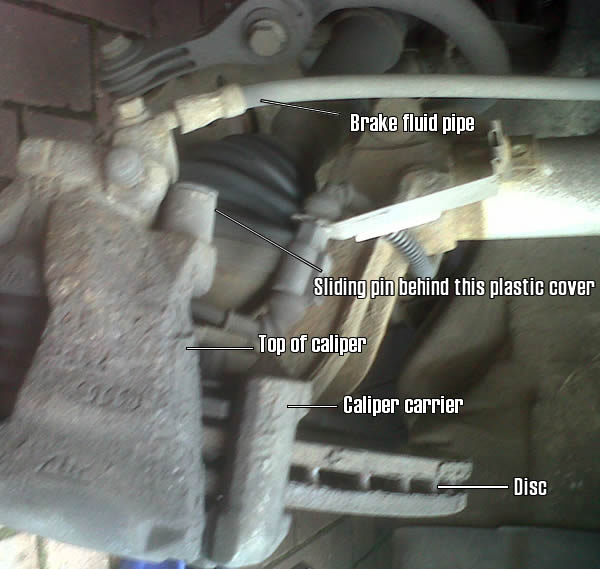Performance Brake Pad Guide
"The Evolution and Importance of Brake Pads"
Brake pads are crucial for safe driving. They help stop your car by pressing against the brake discs. Over time, these pads wear down, which can affect your car's braking performance.
Brake pads have been a critical safety component in cars since they began. Going right back to the 1950s asbestos was the go-to material for brake pads because of its heat resistance and durability, not to mention it was relatively inexpensive.
However, as we learned more about the health risks of Asbestos, the search for safer materials began. The modern brake pad is an engineering marvel, and there is more choice than ever before.
Now with new emissions regulations targeting the small particles emitted by a cars brakes, we expect to see a further evolution of brake pads formulations.
Today, the type of brake pads you need depends greatly on your driving style. If you're into aggressive driving or enjoy track days, high-performance pads that can withstand high temperatures and provide reliable stopping power in extreme temperatures are essential.
On the flip side, if your driving mainly involves daily commuting, you might prioritize brake pads that offer comfort, produce minimal dust, and operate quietly.
For most drivers the choice is somewhere between these two extremes.
It's also important to consider the noise ratings of brake pads. With advancements in technology, brake pads now include a mix of materials like resins, fibers, fillers, and other ingredients to enhance friction, fade resistance, and reduce noise.
This complex construction ensures a balance between performance, durability, and noise control.
When choosing brake pads, it's crucial to opt for those that meet or exceed industry standards. In Europe, for example, the R90 certification is a mark of quality, indicating that the pads have been tested and approved for road use.
This standard helps ensure that your brake pads will not only be safe but also effective for your specific driving needs.
How they are Made
Brake pads are made from a complex mix of materials, each serving a specific purpose.
- Resins: These act like glue, holding the pad materials together.
- Fiber: This binds the pads during manufacture, ensuring everything stays intact.
- Fillers: They bulk out the pad, giving it the necessary size and shape.
- Ingredients for Friction and Fade Resistance: Special components are added to enhance the pad's grip (friction levels) and its ability to resist heat-induced fade.
- Abrasives and Lubricants: This might sound surprising, but abrasives help maintain contact with the brake disc, while lubricants prevent excessive wear and tear.
- Noise Reduction Ingredients: These are crucial for minimizing vibration and, therefore, noise when you brake.
Each ingredient plays a role in balancing performance, durability, and noise control, making brake pads a key component in your car's safety and functionality.

Pad Material Choices
Different materials offer varying benefits, knowing these helps you make better choices when upgrading your car:
- Ceramic Pads: Long-lasting, less dust, but pricier.
- Metallic Pads: Better performance but can be noisy and create more brake dust.
- Organic Pads: Quieter and cheaper but wear out faster.
Race Pads and Cheap Road Pads
Race pads are designed for high performance at high temperatures, so they might be noisy and less effective when cold. On the other hand, some low-cost road pads can fade quickly or have a short lifespan. It's a balance between performance and cost.

Symptoms of Worn Brake Pads
- Noise: Squeaking or grinding sounds when braking often indicate worn pads.
- Warning Light: Many modern cars have sensors that trigger a warning light when pads are thin.
- Thin Pads: Visually, if the pad depth is starting to wear thin, it's time to replace.
- Reduced Braking Performance: If your car takes longer to stop, your brake pads might be worn.
- Vibration: Worn pads can cause the steering wheel or entire car to vibrate when braking.
Failing to replace pads will result in damage to the brake rotors/disks and cost a fortune, I know this one from bitter experience and was caught out when my inside pads wore more quickly than the outside ones which I inspected.
Wear indicators.
A dashboard light will show on many modern cars to indicate the pads need replacing.
Some modern designs will also indicate the amount of pad wear allowing to to anticipate the rate of wear and choose a suitable replacement date.

Cars Without Wear Indicators
Older cars or basic models might not have wear indicators. Regular checks are vital in these cars to spot the signs of wear early.
Some designs have inspection holes or other visual wear indicators allowing you to determine the wear rate of your pads.
Often brakes have a mechanical wear indicator which creates a loud squeal as it contacts the brake disc/rotor. This noise is hard if not impossible to ignore.
Failure to replace pads may result in damage to the rotors/discs as I discovered to my cost.
Variation in Wear Rates
Driving style greatly affects how quickly brake pads wear. Aggressive braking and frequent stop-and-go city driving can lead to faster wear.
I also found that on one car I owned the inner pads wore more quickly than the outer ones, and I used the outer ones to check pad wear without removing a wheel. The pads wore right down and cause metal on metal scoring and requiring expensive replacement.
Please be sure to check out our YouTube channel for more news on car mods & upgrades to help you make better choices and get the most performance from your car.
Our forums are the friendly place like minded car enthusiasts meet up to discuss car matter and compare notes so be sure to drop in and say hello.
Please Check out my YouTube channel, we're regularly adding new content...
PLEASE HELP: I NEED YOUR DONATIONS TO COVER THE COSTS OF RUNNING THIS SITE AND KEEP IT RUNNING. I do not charge you to access this website and it saves most TorqueCars readers $100's each year - but we are NON PROFIT and not even covering our costs. To keep us running PLEASE Donate here
If you liked this page please share it with your friends, drop a link to it in your favourite forum or use the bookmarking options to save it to your social media profile.
Feedback - What do You Think?
Please use our forums if you wish to ask a tuning question, and please note we do not sell parts or services, we are just an online magazine.
Help us improve, leave a suggestion or tip
Please watch this video and subscribe to my YouTube channel.

 Click to accept YouTube Cookies & Play.
Click to accept YouTube Cookies & Play.